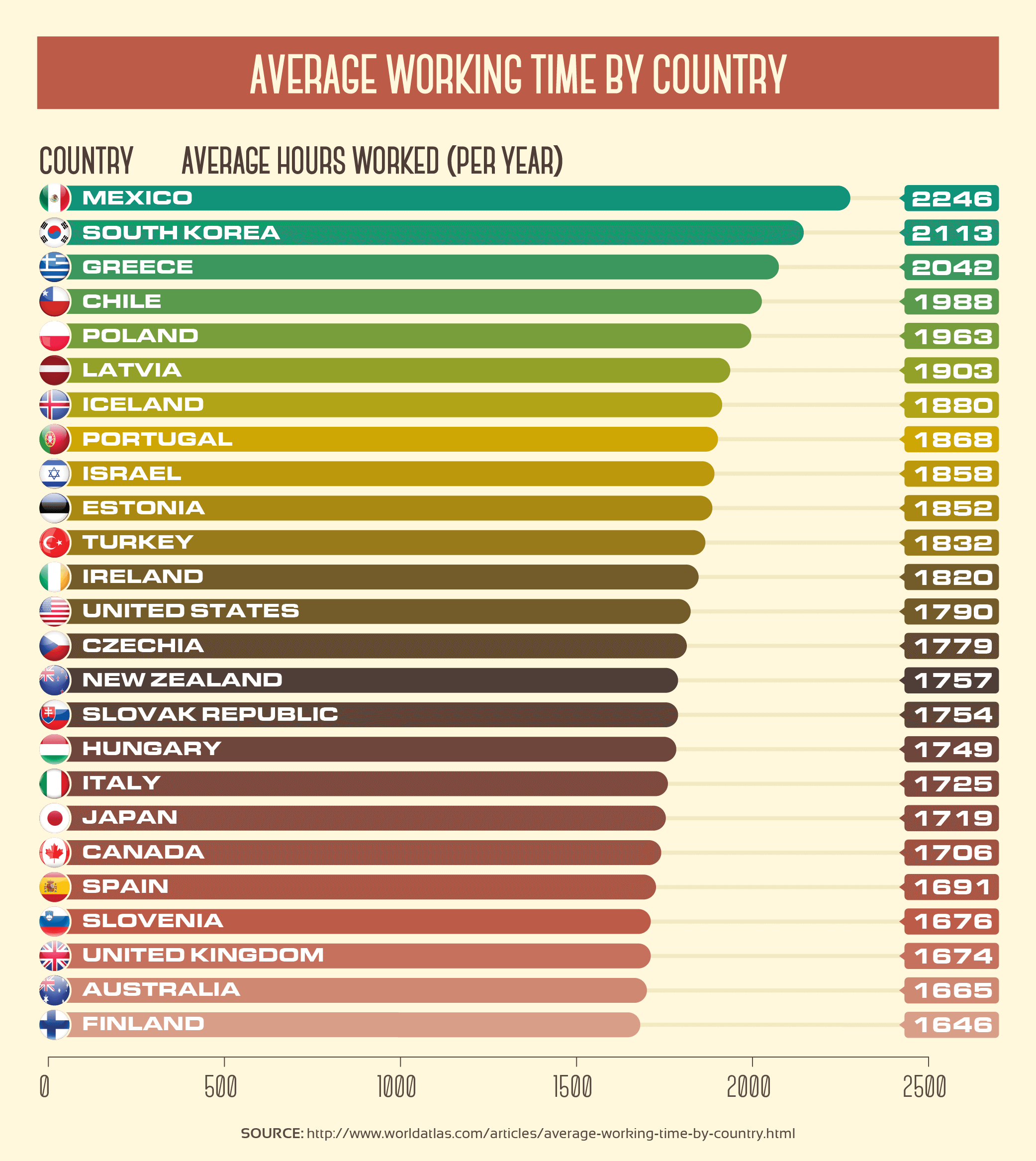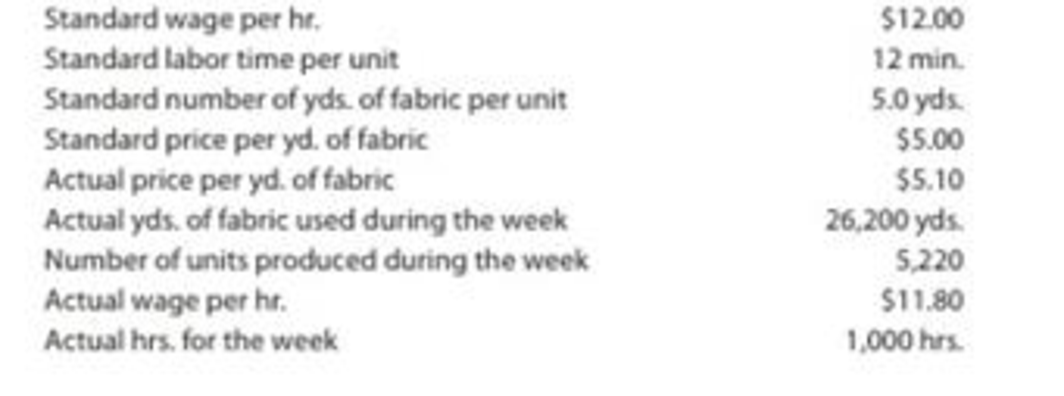Full-time employment often comes with benefits that are not typically offered to part-time, temporary, or flexible workers, such as annual leave, sick leave, and health insurance. However, legislation exists to stop employers from discriminating against part-time workers so this should not be a factor when making decisions on career advancement. They generally pay more than part-time jobs per hour, and this is similarly discriminatory if the pay decision is based on part-time status as a primary factor. The Fair Labor Standards Act does not define full-time employment or part-time employment.
The definition by the employer can vary and is generally published in a company's Employee Handbook. Companies commonly require from 32 to 40 hours per week to be defined as full-time and therefore eligible for benefits. For hourly employees, include shift differentials and cost of living increases in the hourly wage. If the employer regularly schedules the employee for more than 40 hours per week and the employer pays premium pay, for example, time-and-a-half for hours over 40, add the overtime pay to the weekly wage.
Include the premium pay in the gross wage part of the comparison formula. A "regular schedule" is one that the employer has scheduled employees doing that type of work for at least the 90-day period prior to the date of injury. It is entirely up to an employer to come up with its own criteria as to how many hours an employee works a day or week or any other factors that make an employee part-time vs. full-time for that particular employer. However, if wages or wage benefits are involved, then the employer must clearly spell out in writing (policy, handbook, etc.) as to what it takes to be a full-time employee vs. being a part-time employee.
This is especially important if an employer's part-time employees do not earn wage benefits such as, but not limited to, vacation pay , sick leave, and holiday pay, while its full-time employees can earn wage benefits. Generally, an FTE is a way to express a part-time workforce in terms of full-time employment. This calculation is sometimes done by taking the number of total hours worked by all part-time employees and dividing by the number of hours that are considered to be a full-time schedule. For example, if an employer has 10 employees who work 20 hours per week and considers 40 hours a full-time schedule, this would equate to 5 FTEs.
Keep in my mind that some laws, including the ACA, require employers to use specific calculations to determine the number of FTEs. The ACA requires that employers add all the hours worked by part-time employees in a month and divide by 120. The Fair Labor Standards Act states that any work over 40 hours in a 168 hour period is counted as overtime, since the average American work week is 40 hours - that's eight hours per day for five days a week.
However, many employees work unusual shifts and go above and beyond this standard, putting in more than the average 40 hours. These are a few things you should know about hours and overtime labor laws. Larger employers, with 50 employees or more full-time employees are required to offer healthcare benefits to those workers working at least 30 hours a week, or at least 130 hours a month, or pay a tax penalty. For smaller employers, with 50 employees or less, offering health benefits is left up to the employer.
Is 36 Hours A Week Considered Full Time Certain states and local jurisdictions require employers to provide paid sick leave to employees. These laws typically require the employee to work in the jurisdiction for a minimum number of hours to be eligible for sick leave. In most cases, the threshold is set low enough that many part-time employees satisfy this requirement. Employers decide how many hours per week is full-time and part-time, and what the differences will be. Part-time employees are usually offered limited benefits and health care. For example, a part-time employee may not be eligible for paid time off, healthcare coverage, or paid sick leave.
In truth, there is no legal definition of full-time employment; this depends on your employer and company policy. The only exception is that which falls under the Affordable Care Act for health coverage purposes. To determine the hourly rate, divide the total earned within the prior 52 weeks period.
Multiply this rate by the number of hours the employer's regularly scheduled full-time employees work per week. The overtime earnings are included in the gross wage part of the formula. With the introduction of the Affordable Care Act , the definition of a full-time employee has been prescribed as a worker who spends an average of 30 or more hours per week on the job. Employers with 50 or more employees are required to offer health care to full-time employees under the ACA.
The IRS offers guidelines to help employers determine the line between part-time and full-time hours, with part-time employees averaging fewer than 30 hours per week for a calendar month. The definitions of full-time and part-time can vary depending on law and policy. Most employers determine full-time status based on business needs and typically consider an employee to be full-time if they work anywhere from 32 to 40 or more hours per week. However, certain laws define full-time differently, such as the Affordable Care Act , which considers full-time as working, on average, at least 30 hours per week.
Regardless of your company's definition of full-time status, coverage under various employment laws is based on the definition provided in the law. Part-time workers may occasionally end up working overtime, or more than 40 hours, in a week. This might happen when a business is at the height of its busiest season, a full-time employee is unable to work, or some other circumstance changes. Part-time worker overtime is governed by the FLSA rules on exempt and non-exempt employees. Most likely you will be required to pay a part-time worker overtime, but be sure to review the rules.
Even though laws are loose and nebulous, misclassification of workers can cause many legal problems for employers. Companies that offer things like paid-time off, health care, and pension must be careful to be consistent in how they dole out these benefits to avoid accusations of discrimination or unfair labor practices. Employers who deliberately misclassify workers can be subject to many thousands of dollars in penalties and fines, which can include back wages and employment taxes and can be levied by both the IRS and the DOL. As such, if you work 32 hours per week in Texas, you're legally considered full-time. Notwithstanding the provisions of subsection 3.2., the definition of Regular Full-Time Employees shall include those employees who work a predetermined work schedule amounting to thirty-six hours per week.
This would only include employees working twelve -hour shifts on Friday, Saturday and Sunday or Saturday, Sunday and Monday. These employees shall receive such benefits as regular full-time employees. It has been reported that some employers deduct the days off from the annual leave entitlement.
This is totally unlawful and employers would be wise not to indulge in such practices. Employees in the "24/7" industries are entitled to the normal sick leave and family responsibility leave benefits. On a work week basis, this act requires employers to pay a wage of 1 1/2 times an employee's normal pay rate after that employee has completed 40 hours of work for workers 16 and over. Weekend or night work does not apply for overtime pay unless it is over the mandated 40 hours. 40 of the Act may satisfy the requirement to pay 1 1/2 times an employee's regular wage for hours worked during the 32 hour rest period. It is not required that an employer pay 1-1/2 times the regular wage to comply with this section in addition to the weekly overtime.
When work is scheduled to alternating weeks and the hours vary, set the wage based on 40 hours as full time. The reduction of the number of mandatory working hours is to be taken from the timetable of the shift schedule. The employer is obliged to acquiesce to the request of an employee to gather up his reduction of mandatory working hours to utilize it later, as it is possible for the operation of the institution to accommodate. You then do overtime of eight hours a week for the first 12 weeks of your 17-week reference period.
You also take four days annual leave and work one normal day that week. When you return to work, you only do your normal hours with no overtime for one week. Even though many people consider 35 or 40 hours a week full-time, the number of hours you are expected to work can vary depending on your employer. Company policy determines how many hours per week is considered a part-time job.
Even though the industry you may be in is what is known as "24/7", this makes no difference. The maximum normal time remains at 45 hours weekly and the maximum overtime remains at 10 hours weekly. However, employees may, in special circumstances, work an additional 150 hours of overtime in one calendar. Out of the total overtime hours allowed, the employer may not request more than 48 hours of overtime over a period of four weeks or 50 hours of overtime in one calendar month. The collective agreement at your work will state what is considered regular working hours and overtime in your industry and also, what payment to expect for such work. According to most collective agreements, a regular working week is 40 hours but it is not unusual for corporate agreements to stipulate a shorter working week than that.
However, the government offers "Interpretive Guidance" towards such agreements, which changes depending on the geography, nature of the work, and other job factors. The page also includes E-tools to help employers calculate overtime pay. If an employee does not have 32 consecutive hours free from work each week the employer must pay the employee 1.5 times the regular rate of pay for time worked during a 32-hour period sometime during the week. An employee who regularly works 30 hours or more per week is defined as full time. The ACA also states that a combination of full and part time employees can result in 50 full time equivalent employees for purposes of meeting the requirement to provide health insurance.
When you are required to work on a holiday either as part of your regularly scheduled hours or as overtime, you will receive your base salary plus two times your base salary. Are part-time employees entitled to the same benefits and break periods as full-time employees? Below we answer these and other frequently asked questions about part-time employees. In the United States, the "standard workweek" is generally considered to be 40 hours, with employees working five days a week, for eight hours per day.
Some employers consider 37.5 hours to be full time, giving 30-minute unpaid lunch breaks each day, while others give an hour and consider 35 hours to be full-time. In general, employers tend to regard full-time employment as anywhere between 30 and 50 hours per week, with 40 hours being the standard. Those companies that have 50-hour work weeks usually apply it to salaried employees only.
The Fair Labor Standards Act dictates that employers must paynon-exempt employeestime and one-half for any hours worked above 40 per week. Anexempt employee paid a salaryis not entitled toovertime payfor hours worked beyond 40 during a workweek. Many employers now consider employees as full-time when they work fewer hours (i.e., over 30 hours, 35 hours, or 37.5 hours).
Under the ACA, employees who work 30 or more hours per week are entitled to health insurance; however, beyond that, companies may set whatever standard they like for full-time compensation and other benefits. The standard for full-time employment was typically 40 hours a week in the past. The U.S. Department of Labor guidelines provide for overtime pay for nonexempt workers after working 40 hours.
Your total working hours should not exceed an average of 48 hours a week during a period of four months. You should have a nightly rest period of minimum 11 hours per day and a weekly rest period of no less than 36 consecutive hours, not including time on standby. It is worth noting that the Working Hours Act does not regulate your right to extra pay.
Rules on extra pay for overtime, call-on or standby time are usually part of collective agreements. If your workplace does not have a collective agreement, you must agree with your employer about payment for any work that you do outside of your regular working hours. Israel has a fairly standard policy on overtime pay for wage workers. For the first two hours of overtime, employers pay you 1.25 of your hourly wage. For every hour after that, employers pay you 1.5 of your hourly wage. Part-time employees who work 12 or more hours per week are required to contribute to the Superannuation Plan.
They are eligible to join the Public Service Health Care Plan if they work for more than 3.5 hours a day or 17.5 hours a week, and are paid more than $900 per year. You will also be paid shift premium for all overtime hours worked immediately before and after the regularly scheduled hours above, but not for other overtime hours. The number of hours worked in a particular week determines whether an employee is entitled to overtime pay, not whether they are considered full-time or part-time.
Under federal law, overtime is due whenever a non-exempt employee works more than 40 hours in a workweek. A few states also require overtime when employees work more than a certain number of hours in a workday, among other situations. There is no legal right to pay for working extra hours and there is no statutory levels of overtime pay. However, many employers pay employees higher rates of pay for overtime.
For purposes of the employer shared responsibility provisions, a full-time employee is, for a calendar month, an employee employed on average at least 30 hours of service per week, or 130 hours of service per month. Part-time workers are not typically afforded the same health and retirement plans as full-time workers. They are entitled to a minimum wage and should be provided meal periods and rest breaks relative to the length of their shift. For most companies, 30 hours to 35 hours per week is considered to be part-time. The federal government does not provide a definition of a part-time employee, so part-time is largely defined by employers and is different from company to company. Because of these confusing regulations regarding full-time hours, many companies are beginning to set policies about handling schedule changes to avoid complaints and grievances.
Usually, as soon as an employee begins working fewer hours than the employer designates as full time, they are considered part-time, which by the U.S. International students must maintain full-time status for student visas. Adult students may also fall under their parents' health insurance if they are full-time, except for one term per year . Students may also be eligible for elected office in student government or other student organizations only if they are full-time.
The Department of Labor has a full-time student program which allows employers to pay no less than 85% of the minimum wage to the student/employee. Full-time employees are often more likely to be provided with benefits, including a pension, health insurance, paid vacation, and sick time, which are not offered to part-time employees. According to the California Department of Industrial Relations, working 40 hours per week qualifies employees as full-time workers.
However, you won't want to confuse the 40 hour work week with the Affordable Care Act regulations. Under most collective agreements, employers cannot ask employees to work more than 150 hours of overtime in one calendar year. The Working Hours Act also gives you the right to take breaks from your work. You should not work for more than 5 consecutive hours without a break.



























